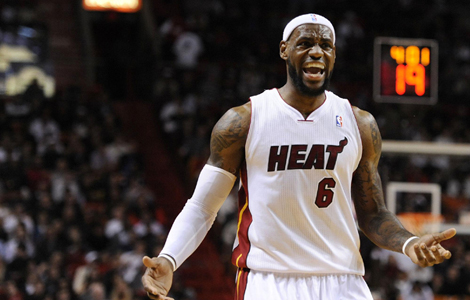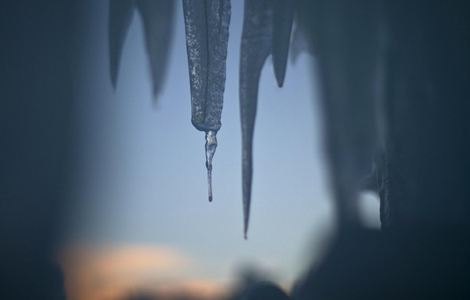More trade friction ahead as protectionism surges
Updated: 2012-01-05 02:30
(Xinhua)
|
|||||||||||
BEIJING - Chinese exporters are likely to encounter more trade barriers in 2012 as trade protectionism resurges globally against the backdrop of a volatile recovery, the Ministry of Commerce (MOC) said Wednesday.
Trade protectionism in developed nations has far exceeded the level seen at the beginning of 2009, following the onset of the global financial crisis in 2008, the MOC's Bureau of Fair Trade for Imports and Exports said.
In developing economies, some industries that are traditionally inclined toward trade protectionism have begun to ask for government intervention to restrict foreign capital and products, an official with the bureau said on condition of anonymity.
"Trade restrictions will increase further in 2012," the official said.
The statement came after MOC data showed that China suffered rising trade friction last year. The country faced 67 trade investigations in 2011, involving $5.9 billion.
Both the number of the investigations and value involved were at high levels, the official said, adding that most cases touched upon the country's steel industry, as well as mechanical and electrical products.
As the country's industry and export structures become upgraded, the products involved in the disputes are changing from labor-intensive sectors to high-tech sectors, the official said.
In 2011, the United States launched 16 probes into alleged intellectual property rights infringements by Chinese companies.
"Some high-end manufacturing and strategically-emerging industries have gradually become a hot spot for foreign trade disputes," the official said.
According to the official, trade protection measures have come in various forms. Some countries have blocked imports from China by exercising safety and environmental standards, while some have imposed complex customs and authentication procedures.
Accusations raised by some developed nations over the last several years have increasingly targeted China's macroeconomic management, including market access, government procurement, intellectual property rights and export credit, the official noted.
Several developed members of World Trade Organization (WTO) wield both bilateral and multilateral tools to counter China's probes. Three Chinese anti-dumping and anti-subsidy cases went before the WTO's appellate body last year, the official said.
"The global economy may find itself in need of demand, confidence and solutions next year, and see countries politicize economic problems," said Zhang Yansheng, a researcher at the Institute for International Economics Research under the National Development and Reform Commission, China's top economic planner.
Li Yu, a lawyer with US law firm Curtis, Mallet-Prevost, Colt & Mosle LLP, said the moves made by US administrative agencies such as the Department of Commerce (DOC) in recent months have an obvious intent.
Regarding a ruling by the US Court of Appeals for the Federal Circuit (CAFC) stating that the US countervailing duty law should not apply to "non-market economy" countries, the official urged the US to change its practice of "double-counting" Chinese products.
The CAFC ruled that the DOC should not impose countervailing duties on goods from China, as government payments cannot be regarded as subsidies in a non-market economy context.
The CAFC decision came after Chinese tire maker Hebei Starbright Tire Co, Ltd and its US-based parent company GPX International Tire Corporation appealed to the US Court of International Trade following a decision by the DOC to levy a 14-percent countervailing duty on Hebei Starbright Tire in August 2008.
The United States has launched 30 countervailing duty probes against Chinese products since November 2006, according to the official.
"China hopes that the DOC will abide by laws and rules, respect US jurisdiction and correct its practice of slapping countervailing duties on Chinese imports as soon as possible," the official said.
The legal process for the case has not yet been completed, as the DOC can still file an appeal with the CAFC or a higher court to review the decision.
Li said Chinese exporters should speak out against unfair treatment and protect their rightful interests.
Related Stories
An excuse for protectionism 2011-12-23 08:35
Protectionism not the cure 2011-10-31 08:02
Protectionism will not create US jobs 2011-10-15 07:27
Crying wolf about protectionism 2011-07-01 11:15
Economist hits out at trade protectionism 2011-04-07 12:31
Hot Topics
Kim Jong-il, Mengniu, train crash probe, Vaclav Havel, New Year, coast guard death, Internet security, Mekong River, Strait of Hormuz, economic work conference
Editor's Picks

|

|

|

|

|

|







